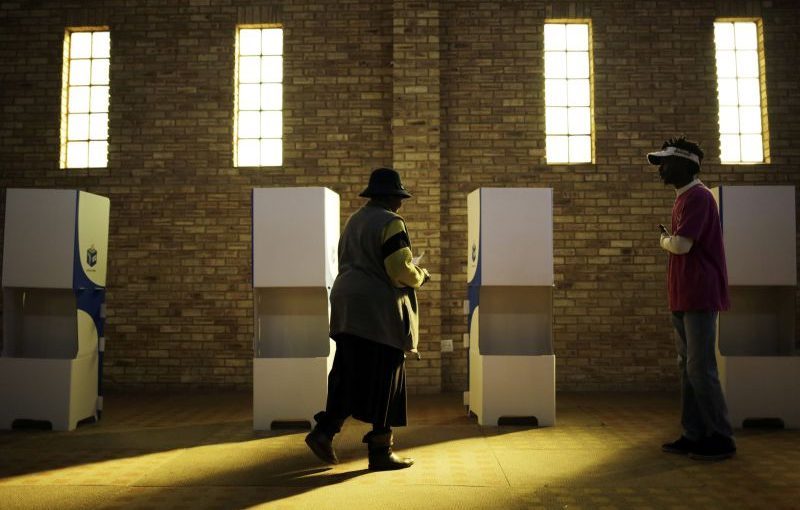Mozambique: Chapo calls on teachers to continue dedicated to “construction of more prosperous ...
CNE has detailed plan to avoid another Nampula fiasco – By Joseph Hanlon

To avoid repeating the fiasco of the first round in Nampula, the National Elections Commission (CNE) has put in place a detailed plan using the political party appointees on the CNE and technical secretariat STAE. This second round of the mayoral by-election takes place Wednesday 14 March, and is between the Frelimo and Renamo candidates (who gained most votes in the 24 January first round).
The CNE (Comissao Nacional de Eleicoes) has not publicly recognised the chaos of the first round, but in practice it took note. STAE (Secretariado Tecnico da Administracao Eleitoral) was ordered to prepare a painstaking report explaining what went wrong, and a plan for the second round was prepared (to which the Bulletin has access).
For the first time, STAE technicians nominated by opposition parties were involved instead of being marginalised, and were used to ensure the register books were correct. Problems with people not being able to find their polling station and lack of vehicles to move material to polling stations in the rain have also been resolved.
Back to paper voters rolls
The initial sign of the chaos in the first round was in December when the Nampula Provincial Elections Commission (CPE, Comissao Provincial de Eleicoes) distributed flash drives to the parties supposedly containing the electoral register and polling station list. But files were empty, duplicated, and corrupted. Renamo and MDM immediately went to the press, rather than using their people inside the electoral system. CNE said they corrected the problem before polling but there were still difficulties on voting day, particularly with people not finding their names on the register.
In part the problem was caused because the by-election was being held using the 2013-4 registration, and many people had lost their voters cards.
For the second round, copies of the 2014 register books have been printed out again on paper instead of on a flash drive, and this was done – and the book stamped and signed – by technicians from the opposition parties in STAE. These signed copies were expected to be delivered by yesterday evening, Sunday 11 March.
In Local Elections 17 we noted that the opposition had not used their representatives inside STAE and CNE; this time, perhaps for the first time, they were put to work.
Central desk to deal with lost cards
People vote in the same place they register, usually a school. Each register book of 800 voters constitutes a polling station and is usually in one of the classrooms. People can vote if they have lost their card but are on the list and have some other identification. But a large school may have 10 or more polling stations, and if people lost their card from four years ago they had to queue at each polling station classroom to see if they were on the list. Many gave up without voting, which may partly have explained the low 25% turnout.
For the second round, at each school or other polling centre STAE will have a technician with a laptop with the full register of all polling stations at the school, and will be able to tell people in which classroom they must vote and what their number is. There was also a complaint in the first round that sometimes polling station staff failed to find people on the register book even if they had cards, and if that happens the STAE technician will be able to check their list of the whole school.
There will also be mobile brigades of local CPE and STAE staff to resolve problems that arise.
Paying staff sooner
Polling stations staff (MMVs, membros das mesas das assembleias de voto) threatened to strike in the first round when they feared they would not be paid. In the second round, they will be paid the day before, 13 March – but will they show up on time Wednesday morning?
Were donors to blame for late opening?
In the first round, 43% of polling stations opened late. CNE indirectly blamed donors. There was a very sensible agreement that vehicles used in the national census last year would be passed from the National Statistics Institute (Instituto Nacional de Estatisticas, INE) to the CNE for use in electoral registration. But in January CNE received a letter from the Ministry of Finance saying the vehicles could not be transferred because of donor rules relating to transfer of vehicles. Each provincial electoral commission received only 2 vehicles, 8 motorcycles, and a few bicycles.
January is rainy season, and on the night of 23-24 January there was heavy rain, and STAE did not have enough covered vehicles to distribute election material in time. STAE director general Felisberto Naife said that enough closed vehicles have been organised for the second round, even if it rains.
Two problems not resolved
Two issues rained in the first round have not been resolved, light and tired staff. Polling station staff complained that during the night when they were counting, there was too little light, and some used their mobile telephones for extra light. But the CNE disagreed and said the lights distributed were adequate.
There were also complaints about the performance of polling station staff (MMVs, membros das mesas do voto). It appears that many of them were simply tired. The CNE points out MMVs have to arrive early in the morning, and many sleep at the polling station, where there often are poor conditions. They start at 5 am and continue for more than 20 hours until the counting is done, often after having little sleep the night before. CNE points out that in many countries counting is not done in the polling station, but instead in a counting centre with fresh staff. CNE proposed no changes, as the system is set in the law.
New actors mean more intense campaign
The entry of high profile people has energised the Nampula second round campaign. On Saturday 10 March President Filipe Nyusi, who is also head of Frelimo, speaking at a party meeting in Dondo, Sofala, called on voters to choose the Frelimo candidate in Nampula; Nyusi had not entered the campaign in the first round.
Also on Saturday Renamo showed off its support from the third party, MDM, which has governed Nampula city since the 2013 election but which came third in the first round. Instead of their traditional blue and white shirts, MDM members were wearing Renamo green and calling for the election of the Renamo candidate, Paulo Vanhale. He, in turn, promised not to dismiss MDM-linked city staff and vereadores (local ministers).
The Renamo campaign has been more animated, with support from local and national musicians, including the renowned Macua singer Ali Faque and the young star “Onze Balas” who drew large crowds to Renamo “showmicios” (an English-Portuguese neologism, combining “show” and “comicio” – a political rally).
Frelimo candidate Amisse Cololo Antonio’s campaign did not have the traditional pomp and grand showmicios and rallies; instead the stress was on door to door campaigning and mobilising Frelimo supporters. Cololo promised the repair roads, build markets, and upgrade waste collection – things which cannot be done in an eight month term of office but pointed to this campaign as a springboard for re-election on 10 October.
Both parties mobilised national figures in the campaign – for Renamo party secretary Manuel Bissopo, office director Viana Magalhaes, and women’s league president Maria Ines Martins – and for Frelimo, Tomaz Salomao, head of the Frelimo Nampula brigade, and well known Nampula natives Aiuba Cuereneia and Alberto Vaquina.
Frelimo candidate Amisse Cololo is a university teacher and currently director of the provincial assembly, while Renamo candidate Paulo Vahanle is a teacher and a senior Renamo member of parliament, with a seat on the Permanent Commission.
Voters from outside?
When it participates in local elections, Renamo often accuses Frelimo of bringing people from outside the city to vote, often claiming busloads of people, but never providing evidence. Ossufo Ulane, spokesperson for the Renamo candidate, called a press conference last Wednesday and said he had a list of people in hotels in Nampula who had been brought in from elsewhere in the province to vote for Frelimo. The Frelimo candidate’s spokesperson Lucinda Malema denied the claim.
In practice, it would be quite difficult to bring in outsiders for this election, because they would have had to have been registered for this purpose in 2013 or 2014. Alternatively, and much more complex, Frelimo would need to have secretly added names to the register or MMVs would have to allow people not on the register to vote. For this election, the register books were checked by the opposition parties, and those parties have MMVs in every polling station who would see if people were voting who were not in the register.
Future mayors may be heads of lists
The most criticised part of the decentralisation agreement between President Filipe Nyusi and Renamo head Afonso Dhlakama was to end the direct election of mayors. Instead, the mayor would be chosen by the party or coalition that gained a majority of votes for municipal assembly. But it could be very difficult to amend the constitution to reduce democracy. Teodato Hunguana, a former Frelimo minister and former Constitutional Council judge, suggested that the head of the electoral list for municipal assembly of the largest party should automatically become mayor, and that this is still a form of direct election. On 7 March the Frelimo Political Commission overrode the agreement and called for the head of a list to become the top figure.
This creates another problem, however. The Nyusi-Dhlakama agreement calls for new district assemblies, and for the party or coalition with a majority of votes for assembly to choose the governor, district administrator, or mayor. Selecting the head of the list in a municipality works because there is only one list. But for the provincial assemblies, there are separate lists for each district.
No civic education yet
Supposedly a civic education campaign began on 13 February to mobilise citizens to register and vote. It should take place in all districts which have one of the 53 municipalities which will have elections on 10 October and which will have registration 19 March-17 May (except for Nampula city, where civi education is delayed so as not to compete with the current election). But our correspondents report no sign of such a campaign – no posters, billboards, or other publicity.
The director of Maputo city STAE, Pascoal Zunguza, confirmed the lack of publicity, and said this time the campaign would be based on personal contact.
By Joseph Hanlon












Leave a Reply
Be the First to Comment!
You must be logged in to post a comment.
You must be logged in to post a comment.